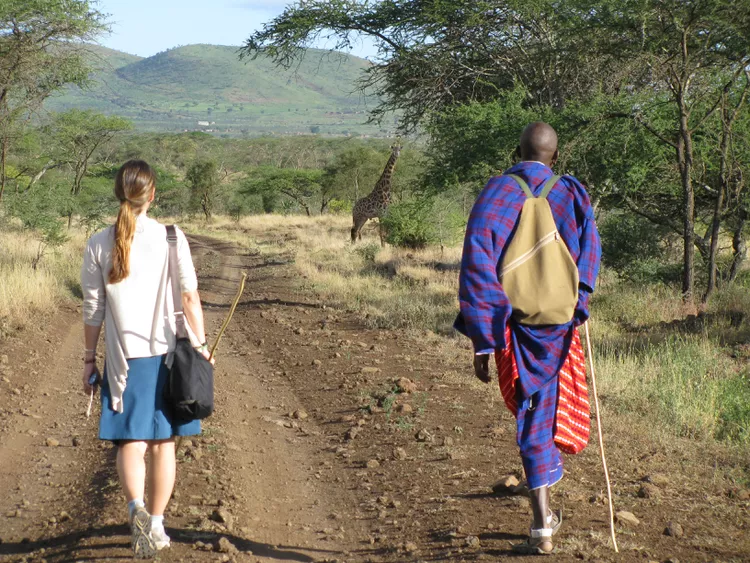Summary of Responsible Travel Tips in Africa
“Ecotourism,” “green travel,” “sustainable travel,” and “responsible travel” – these terms are frequently used when discussing trips to Africa. However, it’s essential to distinguish between marketing jargon and genuine responsible travel practices.
Responsible travel empowers local communities by ensuring they earn fair incomes from tourism, supports conservation efforts, and aims to reduce the environmental impact of travel. Importantly, being a responsible traveler in Africa doesn’t mean sacrificing comfort; you can enjoy luxurious safaris while choosing ethical companies that prioritize community engagement and sustainability.
The shift towards ethical travel began with ecotourism, emphasizing environmental protection and conservation. In recent years, the notion of “sustainable” or “responsible” travel has emerged, recognizing the importance of valuing local communities alongside natural ecosystems. For instance, villagers living near a national park are more likely to combat poaching if they receive training to work as safari guides, thereby participating in eco-friendly tourism practices.
It is crucial for responsible travelers to spend their money within the country they are visiting, thus helping bolster the local economy. Prepaying for an all-inclusive trip often results in profits funneled to tour operators rather than local communities. To benefit local populations, engage in shopping, dining, and accommodations that promote local businesses.
Step 1: Choose a Responsible Tour Operator

Numerous African tour operators advertise responsible travel itineraries; however, it is vital to verify their authenticity beyond marketing claims.
Step 2: Stay in Locally Owned or Eco-Hotels

To ensure your accommodation adheres to responsible practices, look beyond well-known hotel chains. Opt for locally owned establishments, which typically provide a more personal service and insightful recommendations on local attractions.
Step 3: Dine at Local Restaurants

Opt for local eateries when enjoying meals in African cities like Cape Town or Marrakesh, where a diverse culinary scene awaits. Venture out of your hotel to explore regional flavors, as many cities offer excellent local dishes.
Step 4: Shop in Local Markets

Support local economies by purchasing gifts directly from artisans and traders. Engage in delightful bargaining while practicing local languages. For a more comfortable experience, check for government-approved craft shops that offer fixed prices.
Step 5: Minimize Your Carbon Footprint

Adopting sustainable practices is essential when traveling in Africa. While long-haul flights may be unavoidable, there are many ways to minimize your ecological impact once you arrive, such as using local transport methods.
Step 6: Engage with Local Communities

Meeting locals and respecting their cultures is key to responsible travel. Participate in community initiatives, volunteering in local projects or visiting traditional villages to deepen your understanding of local life.
Step 7: Pack for a Good Cause

If you plan to bring gifts or donations to schools in Africa, it’s crucial to ensure your contributions are responsible and sustainable. Be aware of how giving affects local communities, prioritizing meaningful support over short-term fixes.
Step 8: Promote Travel to Africa

Tourism plays a crucial role in many African economies. Share your positive experiences with friends and family to combat prevailing negative stereotypes and promote a more balanced view of the continent.
Conclusion
Understanding and appreciating the complexities of African travel will enrich your journey while ensuring that your presence benefits the communities you visit. By adhering to these responsible travel tips from GoTravelDaily, you can contribute positively to the regions you explore.





